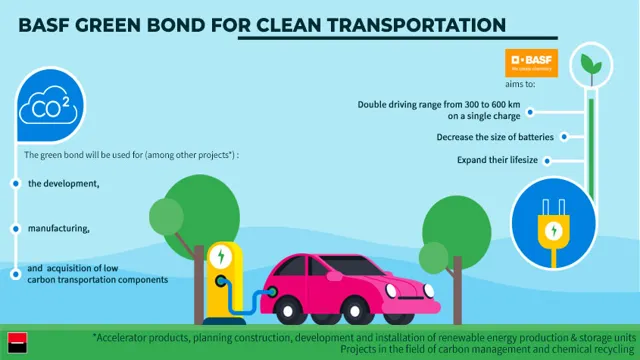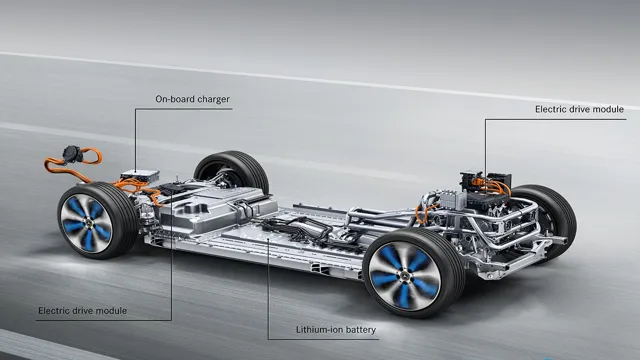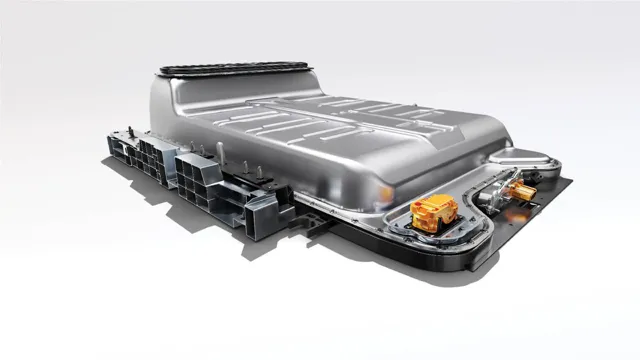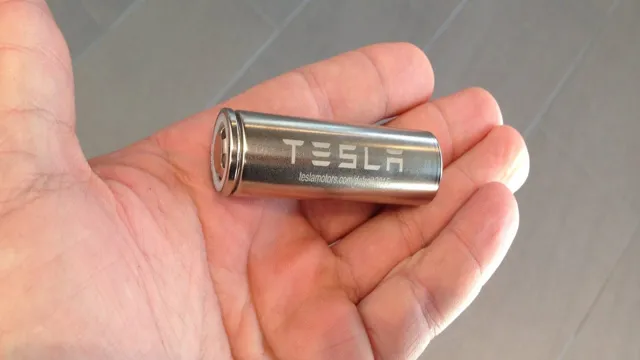Powering the Future: How Electric Car Batteries are Driving Sustainability
Electric cars are becoming increasingly popular amongst environmentally-conscious consumers who are looking for ways to reduce their carbon footprint. It’s no secret that electric cars are better for the environment than traditional gas-powered vehicles, but what about their batteries? Are they sustainable? This is a question that many people have been asking, as the popularity of electric cars continues to grow. In this blog, we’ll delve into the world of electric car battery sustainability and explore what makes these batteries different from traditional car batteries.
We’ll also look at how they’re made, their lifespan, and what happens to them at the end of their usable life. By the end of this blog, you’ll come away with a better understanding of the impact that electric cars have on the environment and how the batteries that power them contribute to a more sustainable future.
Introduction
Electric car battery sustainability is a pressing issue that the automotive industry is currently facing. As we move towards a more sustainable future, electric cars have become increasingly popular due to their low carbon emissions. However, the production and disposal of electric car batteries have raised concerns regarding their environmental impact.
Electric car batteries are made up of rare earth metals, which are scarce and can only be mined from a few regions in the world. Furthermore, the disposal of these batteries poses a significant environmental threat due to the potential for toxic chemicals to leak into the soil and waterways. Therefore, it is essential for automakers to prioritize developing sustainable and recyclable batteries to minimize their impact on the environment.
By doing so, we can ensure that electric cars will continue to be an environmentally friendly option for transportation for years to come.
What is Battery Sustainability?
Battery sustainability refers to the idea of designing and manufacturing batteries that are environmentally and socially responsible throughout their entire lifecycle, from raw material extraction to disposal. This involves ensuring that the production of batteries has minimal impact on the environment and that the materials used are responsibly sourced. Additionally, it involves designing batteries that are long-lasting and can be reused for as long as possible.
Battery sustainability also encompasses the safe disposal of batteries, as they can contain harmful chemicals that can have negative impacts on the environment and human health. By prioritizing battery sustainability, manufacturers can reduce their carbon footprint and contribute to a cleaner, healthier planet.
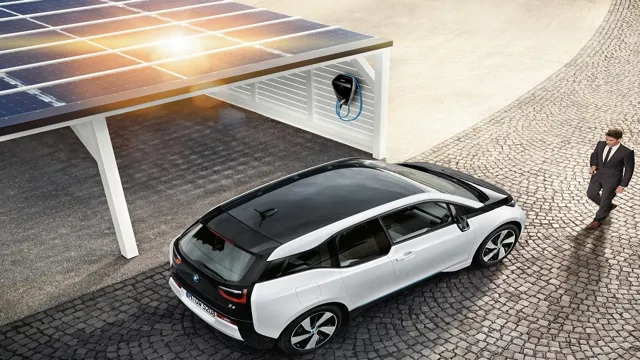
Why is Battery Sustainability Important for Electric Cars?
Battery sustainability is crucial for the electric car industry as it directly impacts the environment and the long-term viability of the technology. Electric cars have been gaining popularity over the years, primarily due to their lower environmental impact compared to traditional gas-powered vehicles. However, the batteries used in electric cars contain materials such as lithium, cobalt, and nickel, which are finite resources.
The extraction and disposal of these materials have significant environmental consequences, including habitat destruction, soil pollution, and greenhouse gas emissions. Battery sustainability ensures that electric cars are not only environmentally friendly during use but also throughout their lifespan. Without proper battery sustainability practices, the electric car industry risks losing the positive impact it has on our planet.
Current State of Electric Car Battery Sustainability
Electric car battery sustainability is a topic that has gained immense importance in recent years. While electric cars themselves are often touted as a more eco-friendly alternative to traditional gas-powered cars, the sustainability of the batteries they rely on is a major concern. A major challenge we face is how to dispose of used batteries, as they contain toxic chemicals that can be harmful to the environment.
However, there is also a lot of progress being made in terms of recycling electric car batteries, which can help reduce waste and minimize environmental impact. Many companies are also exploring ways to make car batteries more sustainable from the outset by using materials that are easier to recycle. The demand for electric cars is only set to increase, so it’s crucial that we continue to make progress in this area.
By investing in sustainable battery technology, we can ensure that electric cars are truly a more environmentally-friendly option compared to traditional gas-powered cars.
Environmental Impact of Manufacturing Batteries
As electric vehicles become more and more popular, concerns surrounding the sustainability of their batteries continue to grow. Manufacturing batteries requires a significant amount of energy, and the extraction of materials used in their production can lead to environmental degradation. However, advancements in battery technology have led to a decrease in the use of materials like cobalt, which is often mined in countries with poor labor standards.
Additionally, processes like recycling and reuse have become more prevalent, reducing the amount of waste generated by discarded batteries. While there is still progress to be made, the current state of electric car battery sustainability is promising, and continued efforts towards sustainability will only make it better.
Recycling and End-of-Life Disposal
The current state of electric car battery sustainability is a topic of increasing importance. It is crucial to establish strategies for recycling and end-of-life disposal in order to maximize the benefits of electric vehicles. While electric car batteries are designed to last a long time, they will eventually reach the end of their life cycle.
At this point, it is important to ensure that the battery is disposed of responsibly. Recycling the battery allows for valuable metals and materials to be recovered and reused. Moreover, recycling reduces environmental impact and lowers the cost of creating new batteries.
Currently, there is not a standardized process for recycling electric car batteries. This is because the manufacturing process for batteries is constantly evolving, making it difficult to develop consistent recycling approaches. Nevertheless, industry leaders are working to create a more sustainable future for electric car batteries.
By researching and developing more efficient and cost-effective recycling options, the electric vehicle industry can create a more sustainable and environmentally friendly future.
Battery Lifespan and Performance
Electric car batteries have come a long way, but concerns about their lifespan and sustainability still remain. The current state of battery technology has reached a point where most electric cars are able to travel 200-300 miles on a single charge, with some luxury models exceeding 400 miles. However, the degraded performance of batteries over time is something that still worries potential buyers.
As with any rechargeable battery, electric car batteries contain materials that wear down with use, leading to a gradual decline in performance. Given the high cost of battery replacements, electric car owners are looking for ways to extend the lifespan of their batteries beyond the warranty period. In the future, battery technology will need to be improved to increase sustainability and make them more affordable for everyone.
One promising idea is to develop batteries that can be easily and cheaply recycled, reducing the environmental impact of disposing of old batteries.
Future of Electric Car Battery Sustainability
The future of electric car battery sustainability is a pressing issue that needs to be addressed properly. As more and more people shift towards electric cars, the demand for sustainable batteries is on the rise. Recycling and repurposing of batteries are crucial in reducing the environmental impact of electric cars.
As of now, the costs associated with recycling of batteries are high, making it an unaffordable option for many. However, advancements in technology are making it possible to reduce these costs and make it a more viable solution. Additionally, there is a need for more research and development in creating sustainable batteries that last longer, are more efficient, and have a lower environmental impact.
Electric car manufacturers and battery providers are working towards this goal, and we can expect significant progress in the coming years. Sustainable electric car batteries hold the key to reducing carbon emissions and creating a greener world for future generations.
Advancements in Battery Manufacturing
The advancements in battery manufacturing have brought new hope to the future of electric car battery sustainability. With their increased energy density and prolonged life cycle, they have made electric vehicles more efficient and practical. Lithium-ion batteries with their high power-to-weight ratio have become the preferred choice for the automotive industry and have brought manufacturing costs down significantly.
Furthermore, the emergence of solid-state batteries promises to take things to the next level by offering even greater energy density and safety. While these advancements are promising, there is still a need to address the current issues of battery disposal and recycling. The industry must come up with sustainable solutions to ensure that they don’t contribute to the already growing environmental crisis.
The future of electric car battery sustainability is bright, but it’s essential to address these challenges to achieve truly sustainable solutions.
Innovations in Battery Recycling and Disposal
Electric Car Battery Sustainability, Battery Recycling, Battery Disposal As the world moves towards a greener future, electric cars have become increasingly popular due to their reduced carbon footprint. However, the production and disposal of electric car batteries have raised concerns about their sustainability. Fortunately, innovations in battery recycling and disposal are paving the way for the future of electric car battery sustainability.
Battery recycling involves extracting valuable materials from used batteries to create new ones, while battery disposal refers to the proper disposal of batteries to prevent harmful chemicals from contaminating the environment. With the development of new technologies, battery recycling and disposal have become more efficient and cost-effective, making the process of recycling and disposing of electric car batteries sustainable. As consumers shift towards eco-friendly products, electric car manufacturers are also becoming more conscious of their environmental impact.
By implementing sustainable practices, electric car manufacturers are ensuring the longevity of electric car batteries and minimizing their carbon footprint, making a significant contribution to a greener future.
Conclusion
In the race towards a sustainable future, electric car battery sustainability is a crucial piece of the puzzle. While these batteries have undoubtedly come a long way in terms of efficiency and longevity, the issue of their environmental impact remains a prevalent concern. It’s up to both automakers and consumers to ensure that they’re taking steps towards supporting sustainable battery practices, such as recycling and responsible disposal.
So, next time you’re cruising down the road in your eco-friendly electric ride, remember the important role that battery sustainability plays in preserving our planet for future generations. Sustainability is not just a buzzword, it’s a necessity that we all must embrace and fervently pursue.”
FAQs
What is an electric car battery made of?
An electric car battery is typically made of lithium-ion cells, which are recyclable and have a longer lifespan than other types of batteries.
How sustainable are electric car batteries?
Electric car batteries are generally considered more sustainable than traditional car batteries, as they emit fewer greenhouse gases during production and use. Additionally, many electric car manufacturers offer battery recycling programs to reduce waste.
How long does an electric car battery last?
The average lifespan of an electric car battery is about 8-10 years, but this can vary depending on factors such as usage and environmental conditions.
Can electric car batteries be recharged using renewable energy sources?
Yes, electric car batteries can be recharged using renewable energy sources such as solar or wind power, which further increases the sustainability of electric vehicles.
